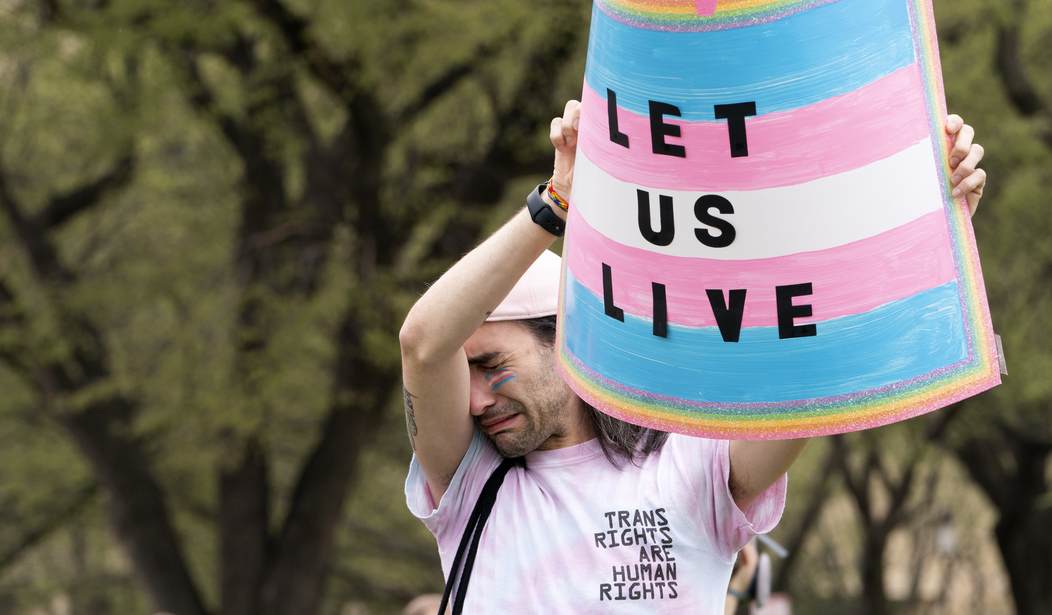The U.S. Court of Appeals for the Fourth Circuit is the most transgender-friendly court in the nation. It proved that reputation again by ruling that states would be discriminating against transgender people if they refused to pay for gender surgeries.
The decision came as a result of two cases out of North Carolina and West Virginia.
“In this case, discriminating on the basis of diagnosis is discriminating on the basis of gender identity and sex,” Roger L. Gregory, an appointee of President Bill Clinton, wrote for the majority, because “gender dysphoria is so intimately related to transgender status as to be virtually indistinguishable from it.”
A majority of justices in the Fourth Circuit also ruled that the ban on "gender-affirming care" violates Obamacare's stricture against discrimination. This legal reasoning has broad implications for other states' Medicaid programs.
The Fourth Circuit used to be one of the most conservative appellate courts in the nation. But recent rulings in favor of transgenderism, including the first ruling to approve the use of bathrooms by trans students, have upended the legal world and transgender policies that lawmakers have enacted.
Taking the case to the Supreme Court will result in a reversal, right? Not necessarily. The high court has refused to hear several transgender cases coming from the Fourth Circuit and appears to be waiting for a case where two appeals courts disagree.
The dissent, written by Trump appointee Judge Jay Richardson, wrote that there shouldn't be a role for the government in determining what treatment plans should offer.
The majority opinion, Richardson wrote, “treats these cases as new fronts upon which this conflict must be waged. But not every battle is part of a larger war. In the majority’s haste to champion plaintiffs’ cause, today’s result oversteps the bounds of the law.”
Richardson said what mattered is that trans patients have the same coverage of the same conditions as others. For example, he said, a trans patient with uterine cancer could get a hysterectomy under these plans.
“The different coverage accorded to treatments for different diagnoses is … based on medical judgment of biological reality,” he wrote. “States can reasonably decide that certain gender-dysphoria services are not cost-justified, in part because they question the services’ medical efficacy and necessity.”
The states tried to argue that there was no bias in their decision not to cover transgender surgeries, only cost concerns. But that's a silly argument that only serves as a cover because of the non-discrimination language in Obamacare and federal law.
Of course, it's biased. The argument is that trans patients don't deserve any different treatments just because of their "condition" of gender dysphoria.
“There is no service that is covered for a cisgendered person that is not covered for a transgender person meeting the same criteria,” Caleb David, an attorney for West Virginia, told judges. In fact, the state says it provides psychiatric services and hormone treatment for gender dysphoria.
Advocates for trans patients said there was no medical justification for drawing the line there, when the state would cover such procedures for other conditions. They also said the financial explanation was suspect because so few people get gender-affirming surgery. It’s “a drop in the bucket,” Lambda Legal attorney Tara Borelli said during oral arguments. But even if the cost was significant, she argued, the cost of public health insurance “has to be a shared burden. It can’t be shunted onto the backs of a vulnerable minority group.”
The court agreed, saying cost-cutting could not justify covering the same treatments for health concerns other than gender dysphoria.
There is absolutely no proof whatsoever that gender-confused people achieve more than marginal improvement in their psychological health after surgery and still suffer from many of the same problems that led them to try surgery in the first place.
Dr. Paul McHugh, the university distinguished service professor of psychiatry at the Johns Hopkins University School of Medicine, wrote, "Transgendered men do not become women, nor do transgendered women become men. All (including Bruce Jenner) become feminized men or masculinized women, counterfeits or impersonators of the sex with which they ‘identify.’ In that lies their problematic future."
No court on earth is going to change that.










